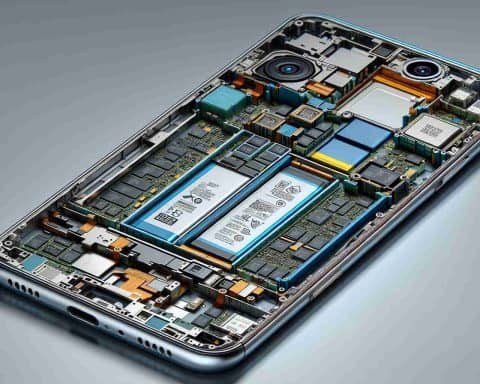In 2018, a game-changing moment quietly unfolded in the smartphone world as an unassuming newcomer, the Poco F1, forged its path to stardom against tech giants. Brought to life by Xiaomi’s sub-brand Poco, this device didn’t just enter the market; it redefined it, offering a tantalizing blend of performance and affordability that was previously unimaginable.
The Price-Performance Paradigm Shift
What set the Poco F1 apart was its clever pricing strategy, which shattered the ceiling of what consumers expected from budget smartphones. Priced daringly lower than its rivals while delivering features often associated with premium models, it democratized access to high-end technology. The Poco F1 broke through economic barriers, reaching customers longing for superior performance without the burdensome financial commitment.
Powerhouse in Disguise
Underneath its modest exterior, the Poco F1 housed a Snapdragon 845 processor, a powerhouse synonymous with top-tier devices. With configurations offering up to 8GB RAM and 256GB storage, its performance was nothing short of exceptional. Users were thrilled by its ability to handle intensive tasks seamlessly, from gaming to multitasking, underscoring its flagship pedigree.
Innovation Meets Accessibility
While cost constraints led to the use of a durable polycarbonate shell, the Poco F1 compensated with groundbreaking features like liquid cooling. This ensured peak performance during extended use, appealing especially to gaming aficionados. Coupled with its bespoke MIUI for Poco interface, the device was finely tuned for enthusiasts craving both performance and value.
A Legacy of Disruption
By challenging flagship norms, the Poco F1 contributed to a pioneering legacy that forced industry-wide introspection on pricing strategies. It carved a niche for the Poco brand, setting an impactful precedent that urged competitors to adapt, ultimately benefiting consumers with better-priced alternatives. Its influence endures, echoing through the corridors of smartphone innovation and accessibility.
The Poco F1 Phenomenon: Beyond the Specs
In the ever-evolving sphere of smartphones, the Poco F1 not only challenged industry giants with its remarkable balance of price and performance but also set a precedent that reverberated through various aspects of consumer technology.
The Ripple Effect on Global Markets
The unprecedented success of the Poco F1 had a far-reaching impact on global markets. By lowering entry barriers into the high-performance smartphone segment, it sparked a price war that compelled other manufacturers to reconsider their pricing strategies. A fascinating consequence was the spawning of a new segment—mid-tier flagships, which offer premium performance at more accessible prices, thereby reshaping consumer expectations worldwide.
Culture of Upgrades
Did the Poco F1 inadvertently trigger a culture of frequent upgrades? In a way, yes. As more people accessed high-performance technology at lower costs, a larger audience became attuned to the rapid technological advancements, driving demand for regular upgrades and feature enhancements.
Environmental Concerns
However, this culture has its disadvantages. The surge in smartphone consumption magnified e-waste issues, adding layers of complexity to global environmental agendas. Sustainable practices and recycling programs became more crucial, pushing companies to innovate not just in products but also in sustainability efforts.
Innovation vs. Sustainability: A Public Dilemma
Does the push for better-priced alternatives compromise environmental goals? This question remains at the forefront of industry debates. The Poco F1’s legacy urges policymakers and corporations alike to strike a balance between innovation and sustainability.
For further insights into the smartphone evolution and its impact, visit theverge.com and androidauthority.com.
















